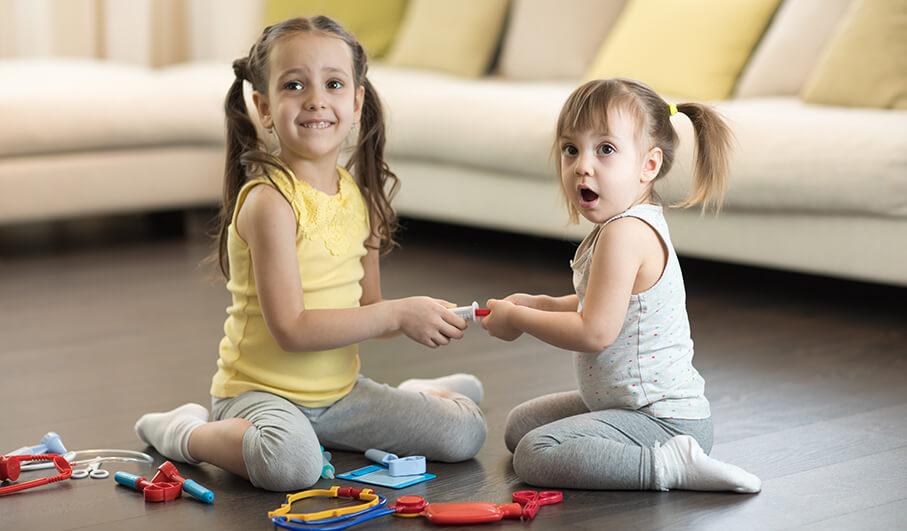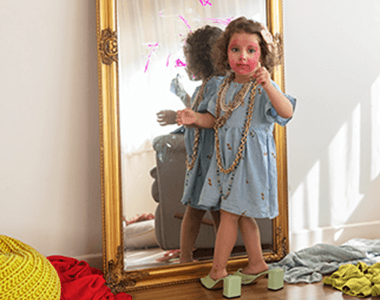5 Ways To Teach Your Toddler How To Share

Why sharing is caring!
How to encourage your toddler to share
How to encourage sharing
Our toddler’s playroom is filled with toys of every shape and colour. Her friend comes over to play. She picks one soft toy out of the dozens that are strewn across the room. Our toddler suddenly decides that’s her ‘favoritest’ toy of all. ‘Mine,’ she yells. ‘No mine!’ insists the friend. The snatching and yelling begins in earnest. What should have been a fun playdate is now an arena of tears and tantrums – unhappiness for the kids and embarrassment for the mums.
Mums, have you been here?
We want our children to be generous and sociable, so we usually rush in to intervene, either to urge our children to share or to ‘find something else to play with’ if the other child isn’t sharing.
So how do we get our children to share graciously?
Let’s understand our toddler’s mindset first.
Around the ages 1 to 3 toddlers believe, quite literally, that the world revolves around them. They are focused on their own thoughts and feelings and they are thinking, “I want that toy and I want it now.” An unwillingness to share is quite normal at this age. These skills only develop around 3 – 4 years of age. Once we know and can accept this, we can help our child grow into a generous child.
Generosity starts with a feeling of plenty
Child psychologists say that children become more generous by having the experience of giving to others and learning how good it feels. As parents, we can help our children have those experiences. Here are a few things we can do:
1. Lead by example
Donate to charities, volunteer our time for a cause, visit the elderly – the more we model generosity in front of our children, the more our child learns what it is to share.
2. Don’t force them to share
Forcing children to share before they are ready creates resentment. What we can do is suggest that they ‘take turns’ instead, saying, “When you’re done with it, can you give it to your friend?” This teaches kids to be more generous, because they get the experience of giving the toy to the other child when they really feel done with it.
3. Set a timer
It might sound odd, but it really works where small children are concerned. Allow each child to play with the toy for a fixed time. When the timer goes off, the next child gets a turn. This will help our child learn how to take turns and also lets her know that giving up the toy isn’t permanent.
4. Praise the positive
Acknowledging our children when they share can build positive associations about sharing. It’s helpful if we are more specific in our praise. Instead of saying, “You’re such a good girl,” we could try, “Did you see the smile on his face when you shared your toy? You made him so happy.”
5. Put away special toys
There may be some items that our child cares deeply about. We can assure them that they don’t need to share it if they don’t want to, but that they can put it away during the playdate. Allowing them this choice gives them a sense of security and makes them more willing to share.
Above all, mums, go easy on yourself. Our child’s sharing (or lack of it) is not a reflection on our parenting. Our children need to feel a sense of ownership before they learn to share. With love and compassion, we can get them there sooner than later.












 Expert Opinion
Expert Opinion


 Parenting Articles
Parenting Articles